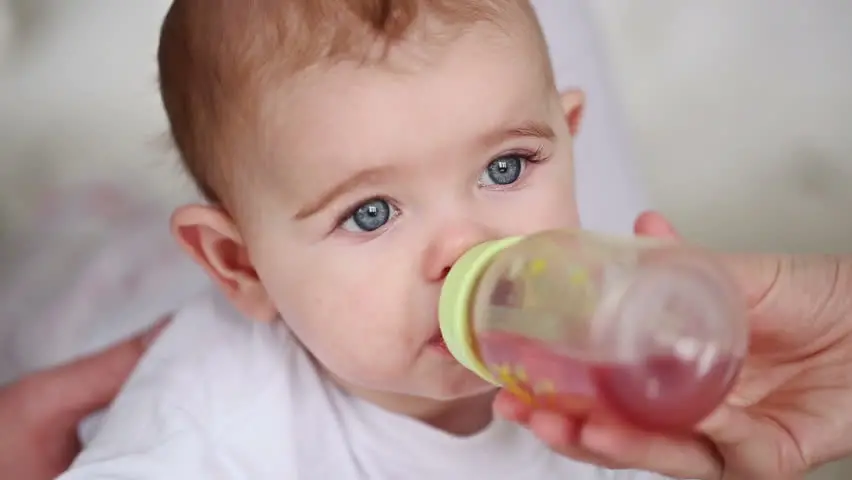- Home
- Medical news & Guidelines
- Anesthesiology
- Cardiology and CTVS
- Critical Care
- Dentistry
- Dermatology
- Diabetes and Endocrinology
- ENT
- Gastroenterology
- Medicine
- Nephrology
- Neurology
- Obstretics-Gynaecology
- Oncology
- Ophthalmology
- Orthopaedics
- Pediatrics-Neonatology
- Psychiatry
- Pulmonology
- Radiology
- Surgery
- Urology
- Laboratory Medicine
- Diet
- Nursing
- Paramedical
- Physiotherapy
- Health news
- Fact Check
- Bone Health Fact Check
- Brain Health Fact Check
- Cancer Related Fact Check
- Child Care Fact Check
- Dental and oral health fact check
- Diabetes and metabolic health fact check
- Diet and Nutrition Fact Check
- Eye and ENT Care Fact Check
- Fitness fact check
- Gut health fact check
- Heart health fact check
- Kidney health fact check
- Medical education fact check
- Men's health fact check
- Respiratory fact check
- Skin and hair care fact check
- Vaccine and Immunization fact check
- Women's health fact check
- AYUSH
- State News
- Andaman and Nicobar Islands
- Andhra Pradesh
- Arunachal Pradesh
- Assam
- Bihar
- Chandigarh
- Chattisgarh
- Dadra and Nagar Haveli
- Daman and Diu
- Delhi
- Goa
- Gujarat
- Haryana
- Himachal Pradesh
- Jammu & Kashmir
- Jharkhand
- Karnataka
- Kerala
- Ladakh
- Lakshadweep
- Madhya Pradesh
- Maharashtra
- Manipur
- Meghalaya
- Mizoram
- Nagaland
- Odisha
- Puducherry
- Punjab
- Rajasthan
- Sikkim
- Tamil Nadu
- Telangana
- Tripura
- Uttar Pradesh
- Uttrakhand
- West Bengal
- Medical Education
- Industry
Early Juice Introduction Might Provoke Risk of Obesity in kids

In 2017, the American Academy of Pediatrics recommended that 100% fruit juice not be introduced into infants' diets before 12 months of age, if introduced at all. This recommendation is based on concerns that the early introduction of juice and other sweet foods increases the risk of childhood obesity and dental caries.
A recent study suggests that the inclusion of juice early in a child's diet increases the consumption of sugary beverages intake rather than water in early and mid-childhood. The study findings were published in the Journal of Nutrition on September 06, 2021.
Whether 100% fruit juice intake is a healthful component of young children's diets remains controversial. Also, the majority of studies on correlates of 100% fruit juice introduction have been cross-sectional and thus do not prospectively evaluate juice introduction, which may introduce recall bias or right truncation. Therefore, Dr Edwina H Yeung and her team conducted a study to identify correlates of early juice introduction (<6 months) and determine whether early introduction establishes a pattern of sugary beverage intake in childhood.
Upstate KIDS was a prospective birth cohort study with follow-up through 7 years (n = 4989). The researchers assessed the age of juice introduction from responses on periodic questionnaires from 4–18 months and categorized them as <6, 6 to <12, and ≥12 months. They also evaluated the sociodemographic information using vital records or maternal questionnaires. The researchers assessed associations of sociodemographic correlates with juice introduction using Cox proportional hazard models. The relations of juice introduction with beverage intake were evaluated using Poisson or logistic regression for adjusted risk ratios (aRR) or ORs, adjusting for sociodemographic covariates and total beverage intake.
Key findings of the study were:
- Upon analysis, the researchers observed that a quarter of participating mothers started giving their babies juice before six months, 49% did it between 6 and 12 months, and 26% of mothers started giving their babies juice only after 12 months.
- They found that
◊Younger maternal age;
◊Black or Hispanic race/ethnicity;
◊Lower educational attainment;
◊Special supplemental nutrition program for women, infants, and children participation (yes);
◊Smoking during pregnancy;
◊Higher pre-pregnancy BMI;
◊Lower household income; and
◊Living in a townhouse/condominium or mobile home were associated with earlier juice introduction.
- They also found that earlier juice introduction was related to a higher childhood juice intake, any soda intake, and lower water intake, holding total beverage intake constant [aRR, 1.5; adjusted OR 1.6; aRR 0.9, respectively].
The authors concluded, "Markers of lower socioeconomic status are strongly associated with earlier juice introduction, which, in turn, relates to sugary beverage intake in childhood, potentially replacing water."
They further added, "Future studies should examine whether introduction of 100% fruit juice and introduction of juice drinks with added sugars have differing effects on beverage preferences in childhood."
For further information:
Medical Dialogues Bureau consists of a team of passionate medical/scientific writers, led by doctors and healthcare researchers. Our team efforts to bring you updated and timely news about the important happenings of the medical and healthcare sector. Our editorial team can be reached at editorial@medicaldialogues.in.
Dr Kamal Kant Kohli-MBBS, DTCD- a chest specialist with more than 30 years of practice and a flair for writing clinical articles, Dr Kamal Kant Kohli joined Medical Dialogues as a Chief Editor of Medical News. Besides writing articles, as an editor, he proofreads and verifies all the medical content published on Medical Dialogues including those coming from journals, studies,medical conferences,guidelines etc. Email: drkohli@medicaldialogues.in. Contact no. 011-43720751


